Please note that this page is automatically translated.
Together with the Global Environment
Our Group’s business is supported by marine products and other natural resources, and we view consideration for the global environment as an important responsibility. Based on our environmental policy, we will strengthen our efforts to solve issues such as securing sustainable marine and agricultural resources, reducing food waste, and responding to climate change.
Pursuing Sustainability in Seafood and Agricultural Products throughout Supply Chain
Our Group’s business requires many ingredients, so the stable procurement of limited marine resources is an important issue. We are strengthening various measures, such as establishing a competitive advantage in procurement, including aquaculture, and thoroughly reducing food waste from procured resources. Leveraging the strength of our overwhelming customer base, we are working to ensure the stable use of marine and agricultural resources throughout the entire supply chain, in collaboration with external partners.
Environmental Policy
Climate change, environmental pollution, resource and water depletion, and biodiversity loss are global issues, and at the same time, they are also important issues for the management of our Group. In response to these issues, we established our Environmental Policy in October 2024 and revised it in November 2025. We ask for the understanding and support of this policy not only from our Group employees but also from our business partners.
Towards sustainable procurement
To achieve both a sustainable society and growth, cooperation from our suppliers and business partners who provide us with ingredients is essential. For this reason, we require compliance with our Procurement Policy not only within our company, but also with all suppliers with whom we do business directly and with new suppliers. Together with our suppliers and business partners, we aim to achieve coexistence and mutual prosperity between our corporate activities and the environment and society.
Procurement Policy and Supplier Code of Conduct
We have established a basic procurement policy that aims to not only comply with laws, regulations, and social norms when procuring raw materials, but also to continuously provide safe and reliable products. We are working with our business partners to achieve sustainable procurement.
Furthermore, based on the “Basic Procurement Policy,” we have established the “Supplier Code of Conduct,” which sets out the items we expect all suppliers and other business partners involved in our business to comply with together with our group. We ask all suppliers and other business partners to understand the purpose of this code and cooperate with us in realizing a sustainable society.
Aiming for long-term stable procurement, F&LC has begun formulating product procurement standards
In addition to our Basic Procurement Policy, we have also begun to establish our own product procurement standards to promote long-term stable procurement. While ensuring the traditional deliciousness, safety, and peace of mind, we strive to procure products that also take into consideration human rights, the environment, biodiversity, and the preservation of ecosystems.
Sustainability/CSR Survey
In FY2015, we sent a sustainability/CSR questionnaire to approximately 470 major first-tier suppliers to assess supply chain risks, including those related to the environment, human rights, and labor, and received responses from approximately 80% of the companies. If the survey reveals a high risk, the relevant department will decide how to respond based on the transaction situation, etc. The survey targets not only marine resource suppliers, but also suppliers of packaging materials, store development, advertising, and other products, allowing us to identify potential risks throughout the entire supply chain and take necessary measures.
TOPICS
First Sustainable Meeting held
In May 2024, we held our first Sustainable Meeting for 75 major suppliers and business partners, with the aim of promoting understanding of our Basic Procurement Policy and our efforts to achieve sustainable procurement. It was an opportunity for dialogue on achieving sustainable procurement through co-creation. We are currently planning and preparing for the second meeting.
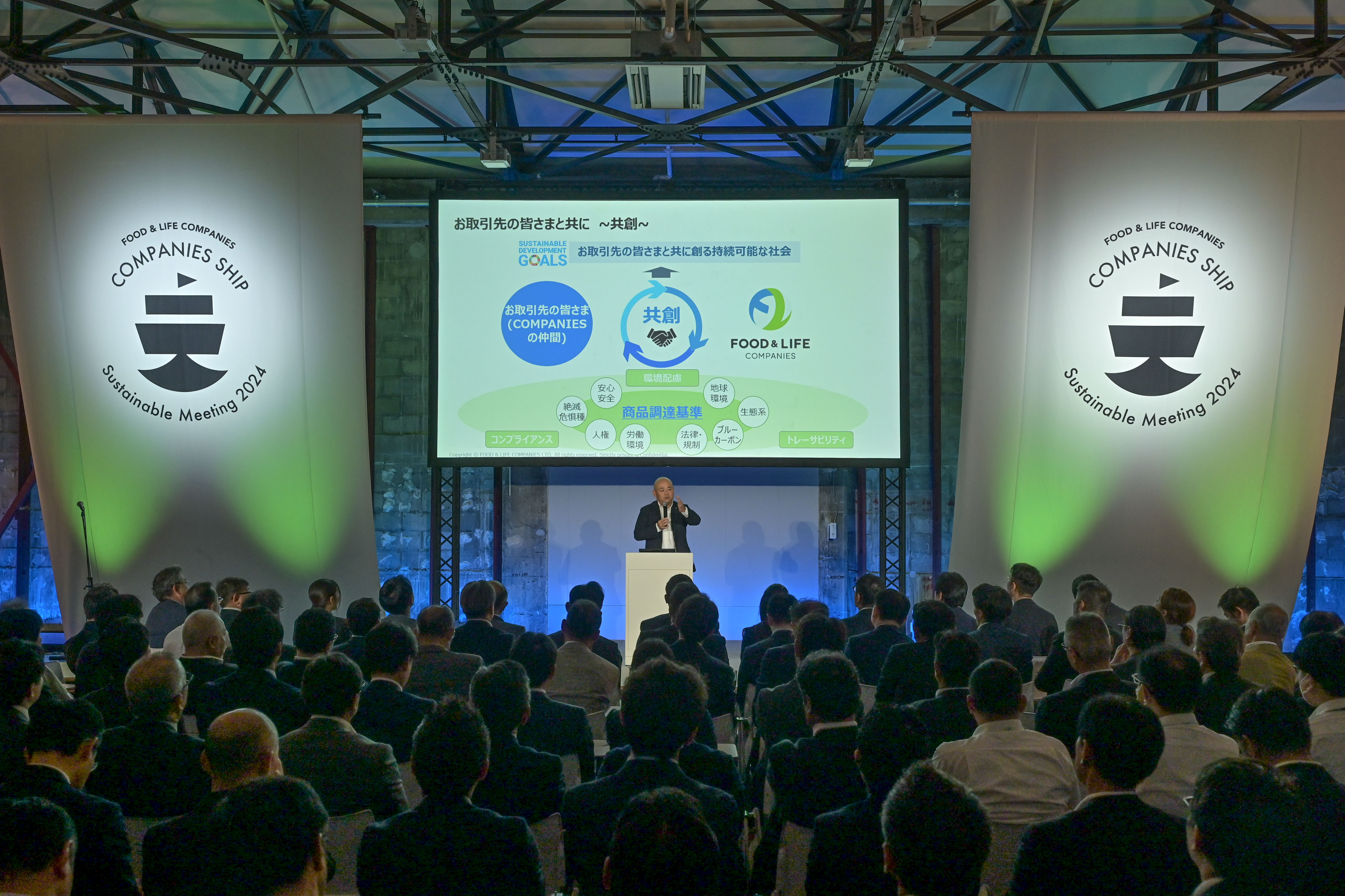
Sustainable Procurement and Development of Fisheries Resources
Building a procurement foundation in upstream businesses aimed at marine conservation and stable procurement
As changes in the marine environment due to global warming raise concerns about a decline in natural fish catches, the importance of procuring marine resources that do not rely on natural resources is increasing. As a response, we are investing in external businesses and cutting-edge technologies, and working to develop new technologies such as seed development through business partnerships, and improved and alternative feed. By strengthening our procurement base in these upstream businesses, we aim to ensure stable quality and production volume.
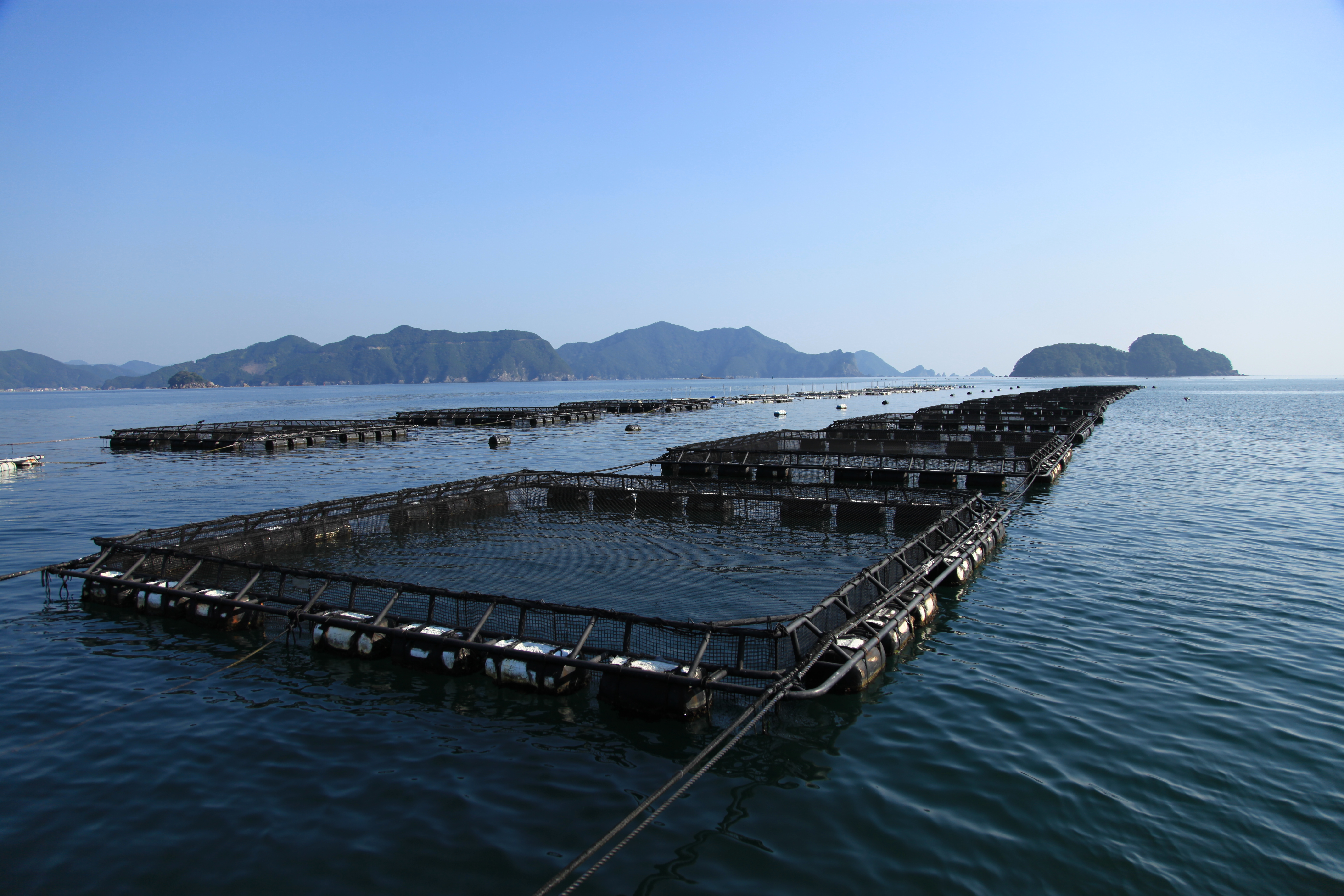
Started sales of artificial yellowtail seedlings
Marineverse Co., Ltd. was established in 2022 as a joint venture with Takuyo Co., Ltd., a major red sea bream aquaculture company. Marineverse has collaborated with Platinum Bio Co., Ltd., a start-up from Hiroshima University, and after approximately three years of research and development, began selling artificial yellowtail seedlings in June 2025. F&LC has also invested in Owase Bussan Co., Ltd., a sales destination that focuses on the aquaculture of yellowtail and hamachi.
In addition to artificial yellowtail seedlings, Marineverse also develops and sells feed for red sea bream and yellowtail. We gather knowledge from our customers and develop new feed to improve its taste and quality.
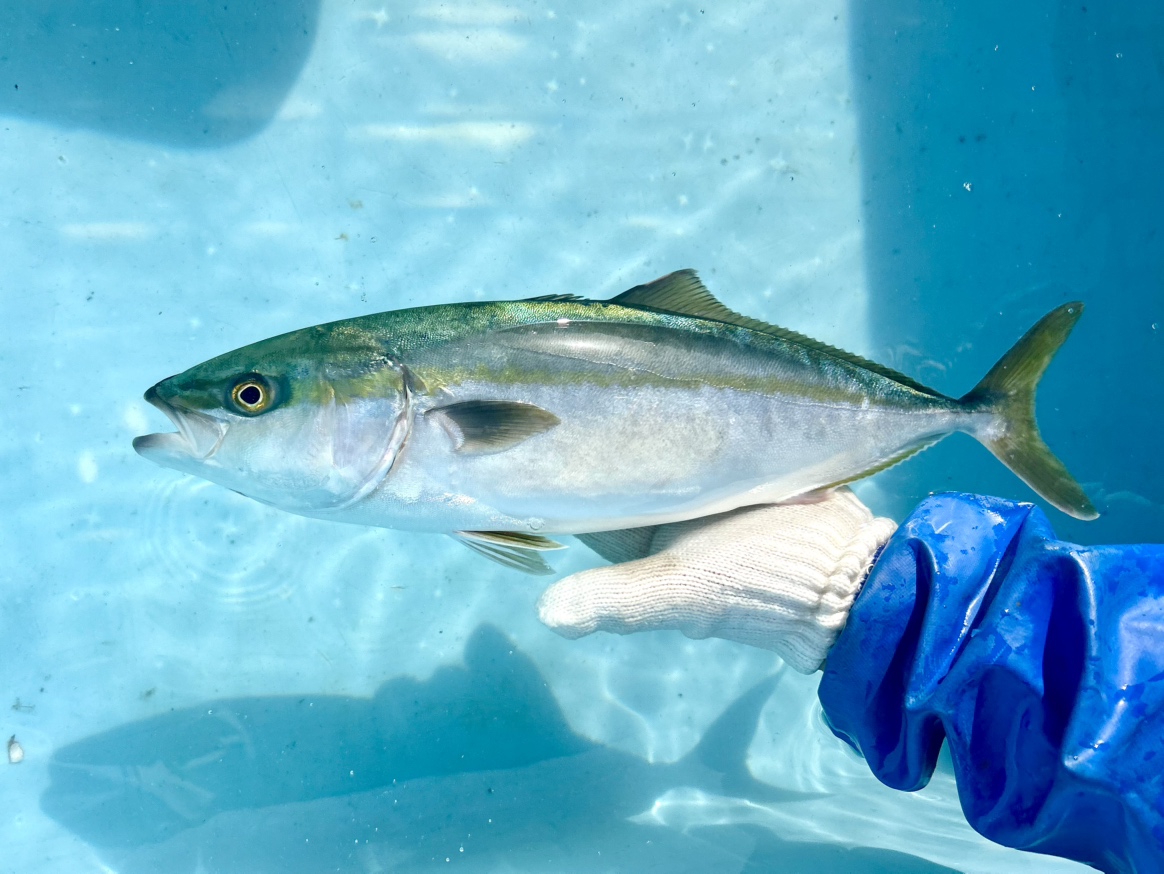
Partnership with land-based sea urchin farming company
In 2024, we entered into a capital and business alliance with Uninomics Inc. The company uses its unique land-based farming technology to regenerate low-meat sea urchins, which are overpopulating and causing coastal denudation, into high-quality sea urchins for sale. We are also building a system for in-store sales, including the construction of farming facilities to ensure a production volume sufficient for sales at F&LC. Furthermore, at the “Sushiro Future Expo Store” at the 2025 World Expo in Japan (Osaka-Kansai Expo), the company’s sea urchins will be sold as one of the seafood products that contribute to solving social issues, and have been well-received by many customers.
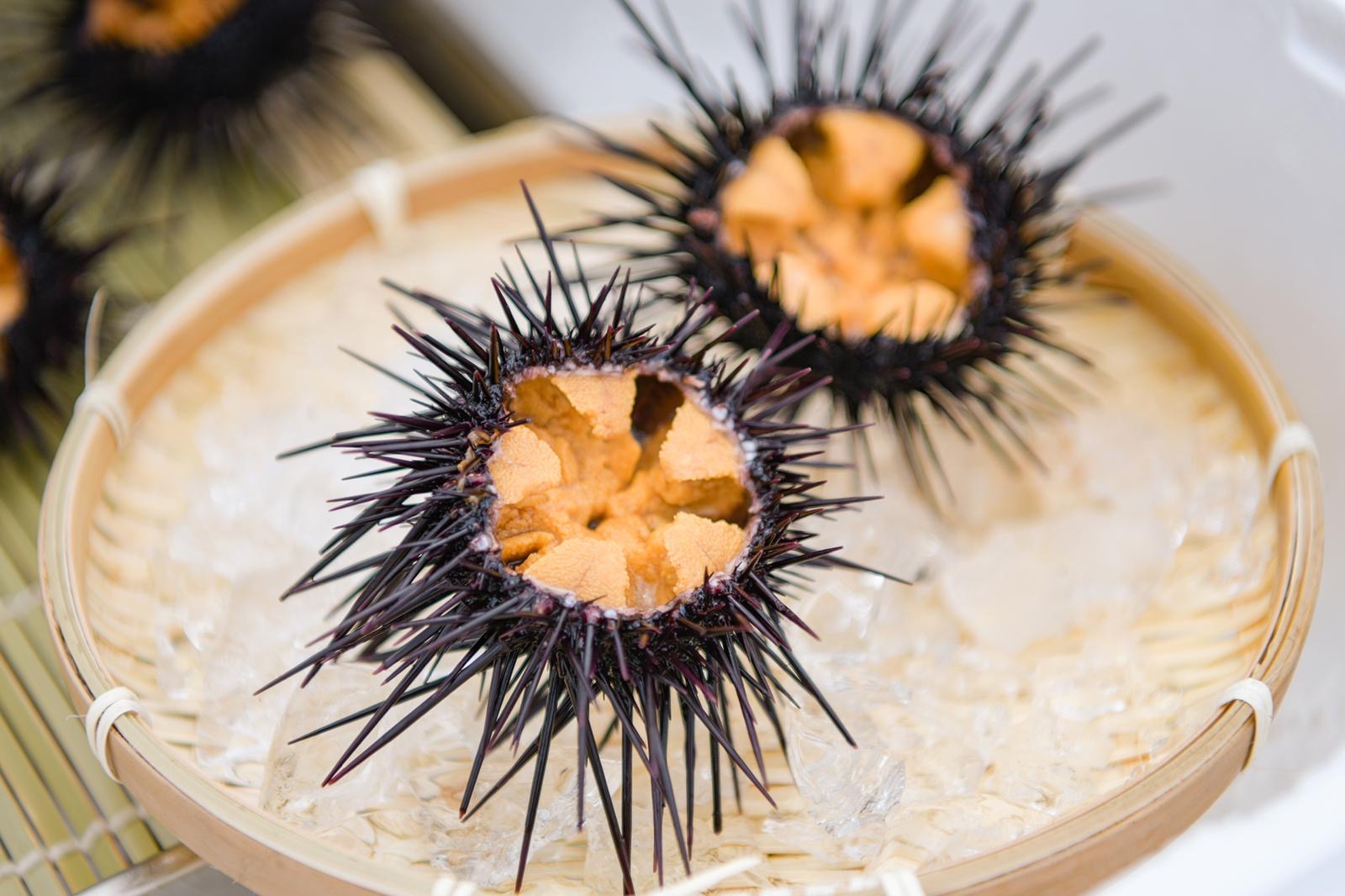
Capital participation in a fisheries technology company
We have invested in university-based ventures Platinum Bio Co., Ltd. and Regional Fish Co., Ltd., and aim to realize sustainable aquaculture through research into fish species that can improve productivity and adapt to environmental changes.
Joint demonstration experiment aimed at realizing sustainable aquaculture
In June 2025, we began full-scale joint demonstration testing of a remote automatic feeding system for yellowtail aquaculture together with Yanmar Holdings Co., Ltd. and Owase Bussan Co., Ltd. Establishing remote feeding technology is expected to improve the efficiency of feeding work and reduce the labor burden. As aquaculture becomes increasingly important in procuring marine resources, we hope that this system will contribute to resolving issues such as labor shortages, the burden of feeding costs, and changes in the marine environment.
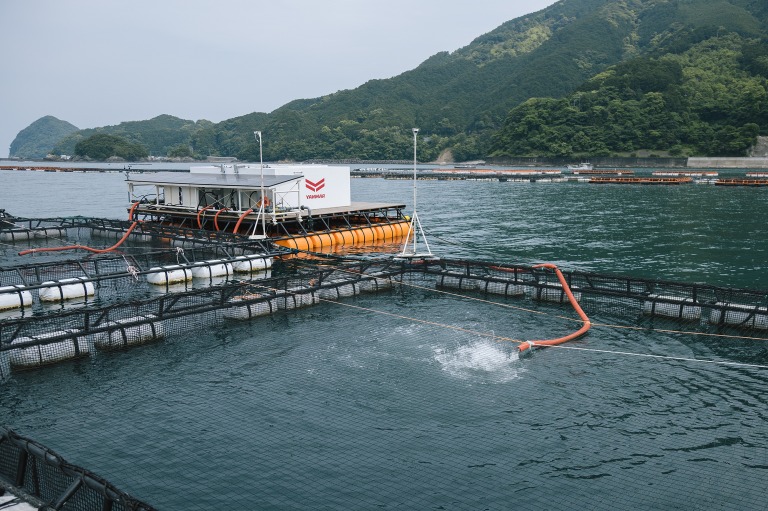
Promoting Food Waste Reduction
We view reducing food waste as an important social issue and are stepping up our efforts to do so. In order to continue delivering high-quality, delicious products at affordable prices, it is important to minimize food waste. To that end, we are promoting a variety of measures, including digital transformation and group-wide food ingredient utilization. We are also considering reusing food waste as feed or biomass fuel, with the aim of making effective use of resources and reducing disposal costs.

Reducing food waste using digital transformation and AI
Sushiro in Japan is working to reduce food waste by using AI. For example, AI analyzes past sales records and predicts demand, determining the appropriate amount of ingredients to order and use.
Furthermore, to provide customers with freshly cooked, delicious rice, the necessary amount of rice is determined based on real-time demand forecasts, and the accuracy of predictions is improving every day thanks to the AI’s learning function.
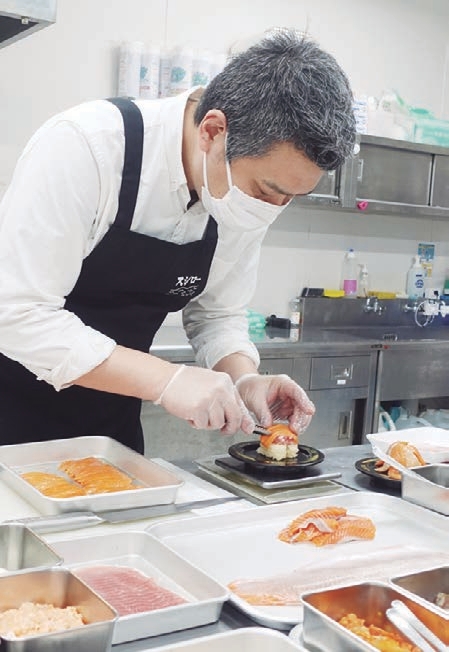
Making full use of precious marine resources
While it’s generally said that only about 40% of a fish can be used for sushi, we’ve found value in even the bones and skeletal remains, building a scheme to use all ingredients across our group’s brands. For example, parts of tuna suitable for nigiri are used at Sushiro, while the head is simmered by chefs at Kaiten Sushi Misaki, and the hand-sliced tuna ribs are served at Sushi Sake Sakana Sugitama. Furthermore, parts that can’t be used for nigiri are utilized, such as the bones used in the soup stock for Sushiro’s ramen. Our core philosophy is that the “back and belly” parts used for sushi have equal value in terms of deliciousness as the bones and skeletal remains. Based on the Japanese culinary philosophy of “no part of a fish should be wasted,” which we’ve inherited since our founding, we are reducing food waste through innovative menu design.
In addition, in 2023, all Sushiro stores will stop conveyor belting sushi and other products, resulting in zero food waste after conveyance.
Reduce, Reuse and Recycle Plastics and Ưaste
As part of our sustainable business activities, we are working to reduce and prevent environmental pollution. As a global business operator, we are promoting the 3Rs of waste, including plastic waste, while complying with the environmental laws and regulations of each country and region as well as our internal company rules.
Plastic reduction and recycling initiatives
Starting in FY2022, we have been gradually switching over to eco-friendly containers made from factory offcuts that use less plastic for takeout orders. This initiative has led to a reduction of approximately 1,096 tons of CO2 per year (FY25 results). To further reduce plastic use, we are also considering switching to paper containers and introducing recycled and recyclable resources.
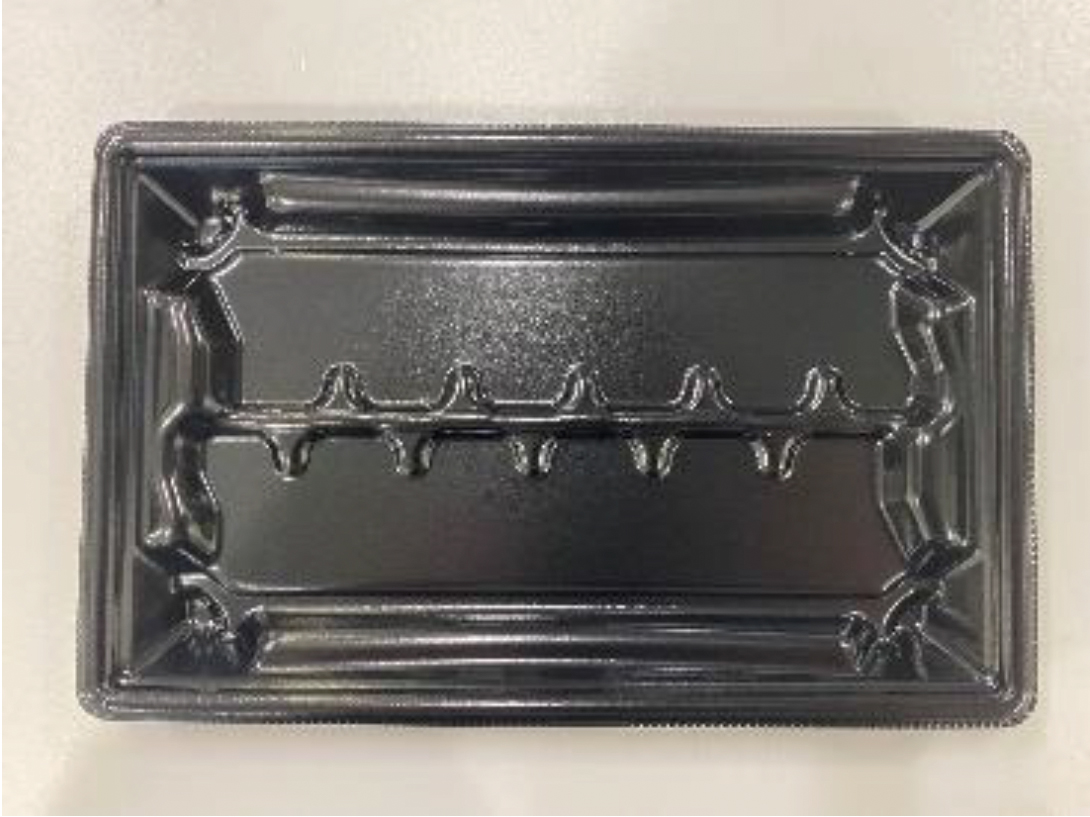
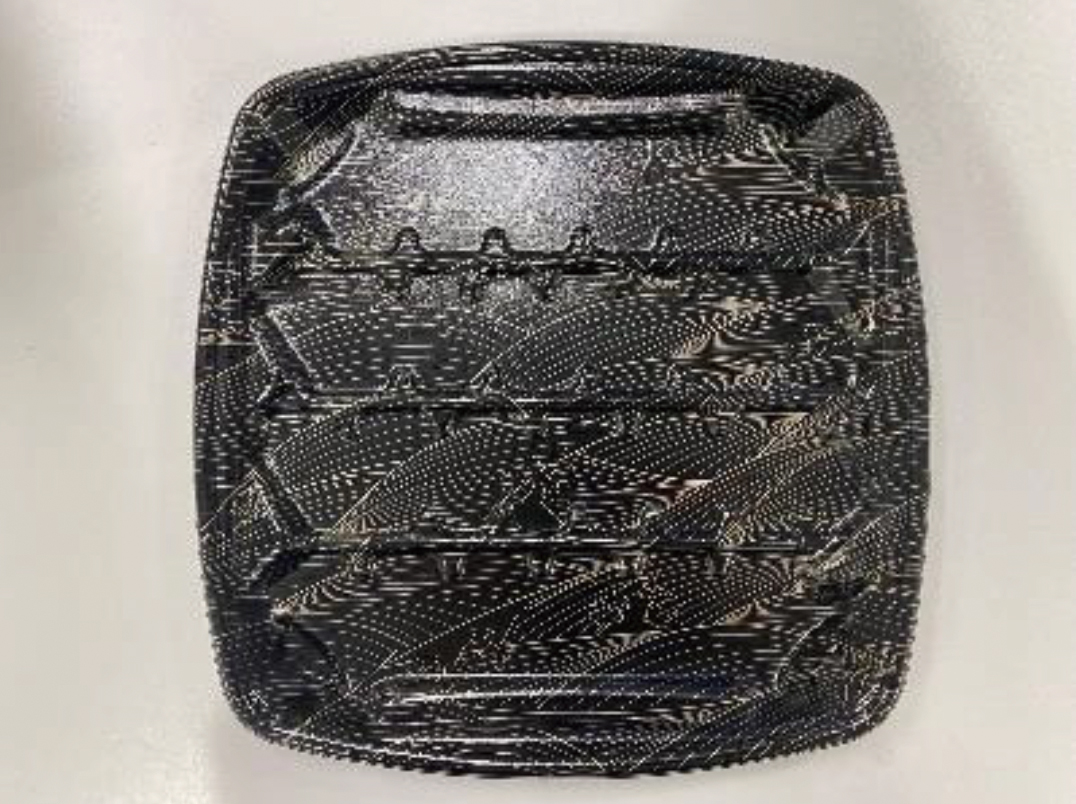
Eco-friendly takeout containers
Effective use of waste cooking oil
Approximately 1.3 million liters of waste cooking oil is used annually at over 700 restaurants across Japan, including Sushiro and Sushi Sake Sakana Sugitama, and is provided as raw material for domestically produced sustainable aviation fuel (SAF). In 2025, Japan’s first large-scale production plant began operations in Sakai City, Osaka Prefecture, and the first passenger flight fueled with the SAF produced there took off from Kansai International Airport. The Sumitomo Corporation Group will contribute to a circular society through the effective use of resources in this way.
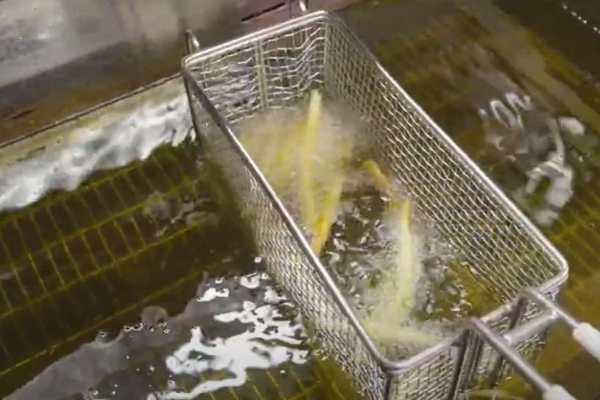
Effective Use of Water Resources and Drainage
We recognize that water is an important resource in our group’s business, and based on our environmental policy, we are working to prevent water quality and soil contamination through efficient use of water resources and appropriate wastewater treatment. Furthermore, Sushiro began water conservation initiatives in 2014, and by FY25, we have completed the installation of “Bubble90” water-saving devices at all domestic stores, identifying faucets with high water usage and working to reduce and streamline water usage. This initiative has also been rolled out to other group brands, and in FY25, the devices were installed at 73 Sugidama Sushi restaurants. We will continue to implement these measures, striving to use water resources effectively through regular maintenance and monitoring of water usage.
Responding to TCFD Recommendations
As the Group uses a wide variety of marine, fishery, and agricultural resources as raw materials, we view climate change as a significant management risk and disclose information related to climate change in accordance with the recommendations of the Task Force on Climate-related Financial Disclosures (TCFD).


